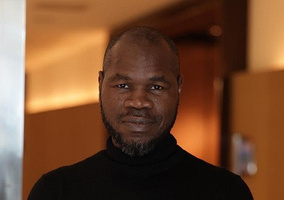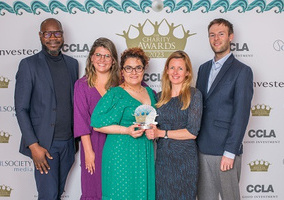It may be widely, and rightly, accepted across the charity sector that people with lived experience of the issues being championed have a crucial role within this work, and a role with influence. Yet too often the intention isn’t backed by action or the action taken isn’t working.
I came to the UK as a torture survivor in 2005 after fleeing persecution in central Africa. I have lived through the challenges of being a refugee in Britain, including detention, homelessness and struggles with mental health.
Despite being an expert on these issues through my own experience – like many others facing other challenges – it was clear my voice and the voices of others who had also been through the asylum system, were not being heard, even by those whose work is to advocate for and support us.
Now I’m working with the Asylum Reform Initiative, the alliance behind the largest pro-refugee coalition in UK history, Together With Refugees, and One Strong Voice, a network of lived experience activists in the refugee sector of which I am a member, on a project supported by global funders including Porticus to support the advancement of people with lived experience as leaders in the refugee sector.
As part of this project, we commissioned a report, Building Leadership from Experience, published today. Conducted by consultants with their own lived experience of being a refugee, the findings and recommendations of the report chime with my own and I hope they will help all those who work with people with lived experience of challenging issues – not just those of us in the refugee sector – to shift power into their hands.
Avoid overprotection
The first and one of the most fundamental learnings identified in the report and one that I have seen consistently, is the belief that people with lived experience are too vulnerable to have a voice or offer insight. It happened to me often. And it took away my power and agency.
People with the genuine intention of supporting and protecting others can, unwittingly, do real harm by preventing them from sharing their experiences and views. This may be because it seems intimidating or has even been perceived as exploitative. But by taking the decision out of their hands, not only are we disempowering those individuals, but we also fail to gain from the specific insight and experience of those still at the sharp end of challenges.
That’s not to say that people aren’t vulnerable and that this shouldn’t be considered when seeking to empower them to influence and lead. But what’s important – and one of the report recommendations – is that mental health and trauma-informed support is offered alongside this work. And that decisions, even on whether they can share their own stories, aren’t taken out of their hands.
Provide opportunity for progression
A second key learning is the lack of opportunity for progression. In many organisations which claim to have people with lived experience in the workforce – perhaps even giving a number or percentage – it is rarely in leadership roles.
One major opportunity to change this would be with more leadership roles ring-fenced for people with lived experience. Then we can more quickly ensure they have a genuine place at the table to make decisions and influence, and I’m pleased to say this is something I am seeing more.
As a minimum, better formal leadership pathways, training and mentoring for people with lived experience are essential. And people with lived experience shouldn’t just be within a specific focus or specialism, but across all functions.
Expertise versus testimony
A lot of the time it can feel like people just want us to tell them how horrible our lives have been, how we have struggled and been impacted by terrible challenges. Often organisations feel the need to gather a narrative of doom and gloom to highlight how people are suffering.
This is, essentially, using people with lived experience for their testimony. Listening to their stories, offering sympathy, and being aware of their vulnerability is not empowering. Rather it gives power to the listener, who feels that they can “help them”.
But there is another space that can be created when we share our experiences – a space where we are powerful as experts. We are the ones who know what we needed, what supported our growth, what created our resilience. From here we can share our testimony but be heard as experts, for others to learn from.
The key to this shift is that others – existing sector leaders – need to make this space. They can rebalance the power. Rather than “learned experience knows best” ask yourself what insight and expertise those with lived experience can bring to decision-making as leaders.
We are now taking the findings and recommendations from today’s report to action change. Our first step is the appointment of a deputy director of the Asylum Reform Initiative, who themselves has lived experience of the UK asylum system. This is a senior and high-profile role within the refugee sector aimed at advancing lived experience leadership whilst working to secure a fairer and more compassionate system.
We can all believe deeply in the goal of a charity sector where lived experience and learned experience experts stand together as leaders. But it is only possible if those currently at the top relinquish some of their own decision-making, some of their own leadership and some of their own power.












